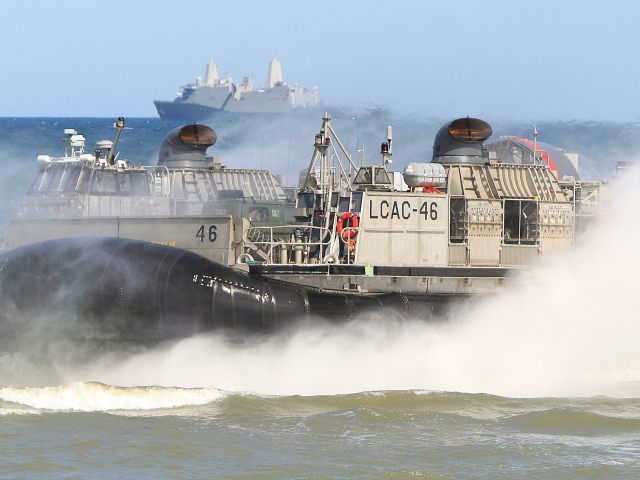The North Atlantic Treaty Organization held a major training exercise in the Baltic Sea, near Russian borders, in the midst of rising tensions between Vladimir Putin and NATO leadership.
Dozens of landing craft and warships, tanks, helicopters, and thousands of troops were involved in the exercise. With several distinguished visitors, including UK defense secretary Michael Fallon and NATO secretary general Jens Stoltenberg, observing from the shore, the might of NATO was on display for the world to see.
The stated goal of the exercises, codenamed “Noble Jump,” was to test the new Spearhead Force’s readiness and deployment capabilities in Eastern Europe.
In addition to testing readiness, this training mission served to reassure NATO allies and friends in Eastern Europe of the alliance’s commitment to them.
“I have met troops from nine countries working together as one,” Stoltenberg said in a statement, emphasizing NATO’s mission to defend member states in a changing security environment.
“In the face of new, real threats, the biggest enhancement since the Cold War of the alliance’s collective defense is taking place,” he also said.
Also in attendance were representatives from Poland and the Baltic states—nations who fear rising Russian aggression could lead to conflict and war in their countries.
“We must know how to defend ourselves. It is our goal to assure a stable order,” Polish foreign minister Grzegorz Schteyna, who was also a distinguished visitor among the observers, said.
Poland, in particular, has been an advocate of displays of NATO firepower as a deterrent to more hostile Russian behavior in the region.
Earlier this week, Russian President Vladimir Putin announced plans to add 40 new missiles to his nuclear stockpile, a move seen as a massive display of force by some in the region.
“We will be forced to aim our armed forces… at those territories from where the threat comes,” Putin said in the announcement of these new plans.
U.S. Secretary of State John Kerry expressed his concerns about the new missiles to the press shortly after the plan was announced.
The supreme commander of NATO, Philip Breedlove, said of the plan, “This is not a way that responsible nuclear nations behave.”
“A rhetoric which ratchets up tensions in a nuclear sense is not a responsible behavior,” he also said.
Other NATO officials have condemned recent Russian posturing as “saber-rattling,” “destabilizing,” and “dangerous.”
Military readiness exercises are not the only way Western leaders hope to scare Russia into less war-like behavior.
The European Union has said that debilitating economic sanctions they placed on Russia to de-incentivize what they view as irresponsible aggression will be extended until at least 2016.

COMMENTS
Please let us know if you're having issues with commenting.